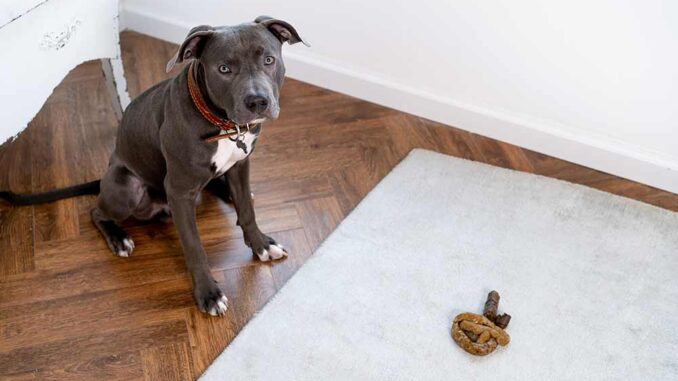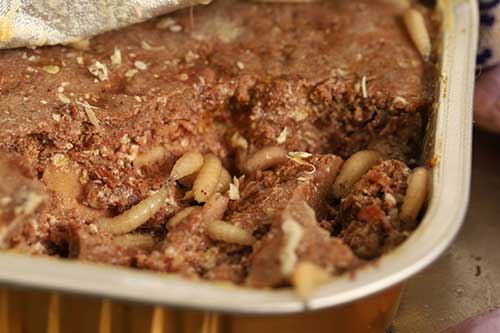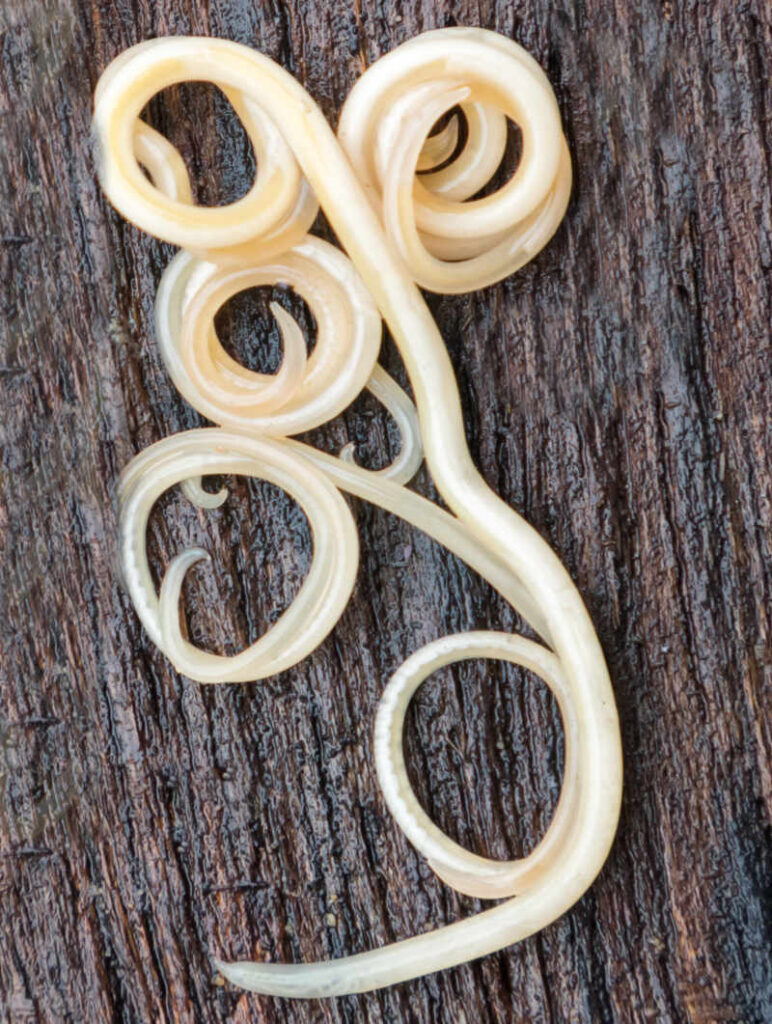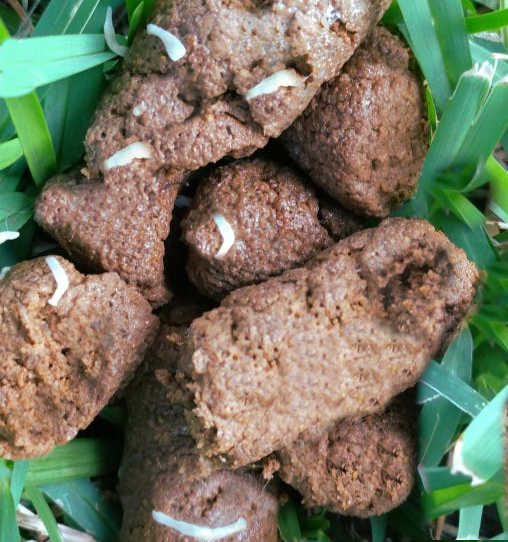
As a vet, a good part of my day is spent discussing and examining dog poop! It may seem absurd, but is a good habit to check your dog’s poop regularly, to see if there is anything unusual lurking in it. As well as checking for a change in color or consistency, owners should be looking for the presence of any mucus, blood, worms or even maggots.
Your vet should be happy to assess any photo or video you have of your dog’s poop, if they have passed something that concerns you. If possible, you could also bring in the dog for a consult with their poop in a bag, so we can examine the stool and look for any parasites under the microscope.
What are maggots?
Maggots are the larvae of flies. They are grey, cream or white little grubs that are soft and have segmented bodies. They can be seen squirming and wriggling about. House flies and blue bottles, along with other species of flies, commonly lay their eggs on dogs’ stool and these will then hatch into maggots. It takes about 1 to 2 days for maggots to hatch.
We can see maggots on poop that the dog has passed and flies have then landed on and laid eggs. If we had checked the poop when it was passed, there will not have been maggots on it. However, if maggots are found on the skin of the dog, this is much more alarming than seeing them on poo. This is a medical condition known as ‘Fly Strike’ which can be life threatening.
When do maggots appear on dog poop?
Maggots are the larvae of flies that can appear in dog poop when the conditions are right: Flies are attracted to feces and will sometimes use feces to lay their eggs. In warm and humid weather, flies can lay eggs on dog poop, and these eggs will hatch into maggots. It can take as little as a few hours to a day for flies to lay eggs and for the maggots to hatch (In cooler temperatures, the process will take longer).
If you are seeing maggots in dog poop right after your dog pooped, it is likely that what you are seeing is not maggots – but worms.
Maggots

Take a look at the photo of dog food above. This food has been left open so flies have landed on it and laid eggs which have now hatched. You can see the maggots are quite small, but visible to the naked eye.
If a dog eats a maggot, it will be digested and we won’t see it in the stool. However, we can see maggots if a fly has laid eggs on the stool once it has been passed.
Maggots only harm the dog if they have been laid on the dog and start to eat the flesh. This typically only happens in dogs who have matted fur and fecal staining and who have chronic health issues such as trouble walking or incontinence.
See this image: the patient has a severe case of fly strike and maggots may be seen on the poop but also on the dog. This dog needs urgent vet care to remove the maggots and start medication including fluid therapy, pain relief and antibiotics.
Oftentimes, owners will see worms (intestinal parasites) in their dog’s poop and confuse these for maggots.
Roundworm

These are roundworms and they are a type of intestinal worm rather than an actual maggot. They resemble cooked spaghetti and may wriggle about and move a lot in the stool.
Dogs get these from eating rodents and birds as well as from contact with the stool of another dog who is infested. We also see puppies becoming infected from their mother either when in the womb or when nursing.
For most, clinical signs are mild and limited to bloating, loose poop and excess hunger. We should be able to easily treat any roundworm infestation with a worming treatment. Discuss with your vet which wormer would be most appropriate for your dog. Learn more about roundworms in dog’s poop.
Tapeworm
Tapeworm segments found in the poo or around the dog’s anus may be confused for maggots. These segments do not move and look more like grains of rice than grubs.

Dogs tend to cope quite well with tapeworm infestations and signs may be mild, potentially including an itchy back end and some diarrhea.
Dogs usually become infected from fleas, who pass the parasite on when the dog ingests the flea with the egg inside. As with roundworm, they are very easily treated with a worming treatment.
Is this an emergency if my dog has maggots or worms in their poop?
If you go to pick up your dog’s poop from the garden and you see maggots wriggling about on top, you can be reassured the flies will have laid their eggs after the dog pooped, and the dog is at no risk here.
If you see maggots on your dog, this is a true emergency and they do require urgent care to remove all maggots and provide supportive care and medication.
Finding worms in the poop is certainly unpleasant. While we won’t need to rush to the vet in the middle of the night, we should get their infestation treated ASAP. Learn more about worms in dog’s poop and what to do or if you have a puppy: worms in puppy’s poop.
Health risks associated with maggots in dog poop
As the maggots have not come from the dog, thankfully they pose no health risk when simply ‘hanging out’ on their poop.
There are, however, health risks associated with worms. When left untreated, they use the dog’s nutrients and cause diarrhea, which can lead to weight loss, excessive hunger and a dull coat. In younger pups and those with a heavy worm burden, there is even a risk of anemia and of a gut obstruction.
FAQs
How do you get rid of maggots / worms in dogs fast?
Dogs cannot have an intestinal maggot infestation, but they can have internal worms. These can be treated with OTC or prescription wormers. If tapeworm are suspected, we should find and treat any fleas too.
All pets in the home should be treated.
How do you dispose of dog poop to avoid maggots?
The most effective way to ensure maggots won’t hatch is to clean up dog poop right away, as soon as it is passed. Bag it up and put it in the trash. Always wash your hands well with soapy water after.
Disclaimer: This website's content is not a substitute for veterinary care. Always consult with your veterinarian for healthcare decisions. Read More.


Be the first to comment